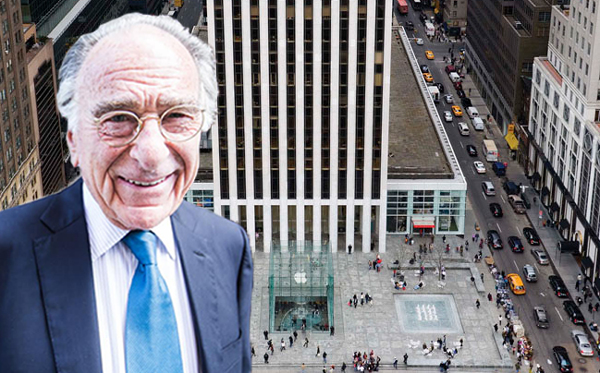After he lost the GM Building in 2008, Harry Macklowe was disappointed, upset and depressed. In his time of need, he didn’t get the support of his family, the developer testified Friday.
Instead, his wife, Linda Macklowe derided him and publicly humiliated him, he testified Friday as part of his divorce trial. She called him a “fool, crazy, an old man” in front of his friends and peers, he said, and those words continued until he moved out of their apartment at the Plaza Hotel in May 2016.
During the divorce trial, Harry has claimed that he’s $400 million in debt as a result of deferred capital-gains taxes from the sale of the GM Building, which he was forced to do in order to repay his loans. He sold the trophy asset — which he bought for $1.4 billion — to Boston Properties for $2.9 billion in 2008. That allowed him to repay a short-term loan from Fortress, which backed his acquisition of the Equity Office Properties portfolio – a $7 billion purchase that became an emblem of the kind of risky dealmaking that fueled the boom.
On Friday, Harry testified that as a result of the GM Building sale, he was subjected to tax gains of roughly $900 million. Though he negotiated a “tax protection plan” with Boston Properties, in which the real estate investment trust agreed to shelter the profits, the plan isn’t indefinite.
“The original tax protection plan had a term to it,” Harry said. “That term of protection, that they would not liquidate certain assets that would trigger the tax, has since terminated. The exposure is still there. The liability is still there. I tried with my attorneys to get a written document extending the protection, but I was not able to do so.”
Judge Laura Drager pressed Harry to recall exactly when he told his wife they’d have to sell the GM Building, and what her reaction was.
“She was very upset that I would be selling what I thought — and we both thought — was a terrific asset that we looked at out of our window every day,” he said, adding that Linda was concerned about losing wealth and prestige as a result of the sale. “She was extremely jealous about that. She and our son wanted to take over the negotiations. They wanted to have a very active voice in what was happening.”
Harry testified that around 2008, his business had a net operating loss of around $270 million to $280 million dollars — the result of various transactions over the past few years. He said he perceived that NOL as a protection against potential taxes associated with capital gains.
Toward the end of the day, Drager lost patience when Harry’s attorney, Peter Bronstein, introduced a summary of Linda’s bank account that her lawyers claimed not to have seen until recently. The summary showed $102 million in deposits between 2007 and 2016 — including nearly $68 million from the sale of art that Harry claimed he was unaware of.
“OK, we’ll spend more time and money,” she exclaimed. “I know you folks have a lot of money. It’s your money to spend, and you’re choosing to spend it on this litigation. No, no, no, both sides are choosing to spend it on this litigation. I’m taking a short break.”
